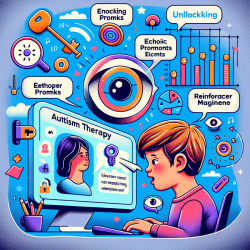Introduction
In the realm of healthcare, sickle cell disease (SCD) remains a significant challenge, particularly in Africa where the majority of cases are reported. The Sickle Cell Disease Genomics of Africa (SickleGenAfrica) Network is a groundbreaking initiative aimed at understanding the genetic underpinnings of SCD and improving patient care. This blog post explores the ethical framework and community engagement strategies of SickleGenAfrica, offering insights for practitioners seeking to enhance their skills and knowledge in genomic research and patient care.
Understanding the Ethical Framework
SickleGenAfrica's research is rooted in a robust ethical framework that emphasizes autonomy, informed consent, and the duty of care. The study highlights the importance of providing comprehensive information to participants, ensuring they understand the nature and potential impacts of the research. Practitioners can enhance their skills by adopting these ethical practices in their own work, ensuring transparency and respect for patient autonomy.
Community Engagement: A Cornerstone of Success
Community engagement is a critical component of SickleGenAfrica's approach. By involving patients, caregivers, healthcare professionals, and community leaders in focus groups, the network has been able to address concerns and build trust. Practitioners can learn from this model by actively engaging with the communities they serve, fostering open communication, and addressing ethical concerns.
Key Findings and Implications for Practitioners
The research revealed several key findings that can inform practice:
- Autonomous Decision-Making: Participants expressed a desire for autonomy in research participation, highlighting the need for clear and comprehensive information. Practitioners should prioritize informed consent and respect for patient decisions.
- Concerns About Biobanking: There were apprehensions about the storage and use of biological samples. Practitioners should ensure transparency in biobanking practices and address any concerns patients may have.
- Desire for Individual Genomic Results: Participants showed a preference for receiving individual genomic findings. Practitioners should consider how they communicate results and provide appropriate support and counseling.
- Inadequate Healthcare Provision: The study emphasized the need for improved healthcare services for SCD patients. Practitioners can advocate for better resources and support for patients.
Encouraging Further Research
The SickleGenAfrica Network serves as a model for ethical and community-focused research. Practitioners are encouraged to delve deeper into the findings and consider how they can apply these insights to their own work. By embracing a patient-centered approach and engaging with communities, practitioners can contribute to advancements in SCD care and research.
Conclusion
SickleGenAfrica is paving the way for a new era of genomic research in Africa. By prioritizing ethical considerations and community engagement, the network is setting a standard for future research endeavors. Practitioners can learn from this approach, enhancing their skills and improving patient outcomes.
To read the original research paper, please follow this link: Sickle Cell Disease Genomics of Africa (SickleGenAfrica) Network: ethical framework and initial qualitative findings from community engagement in Ghana, Nigeria and Tanzania.










